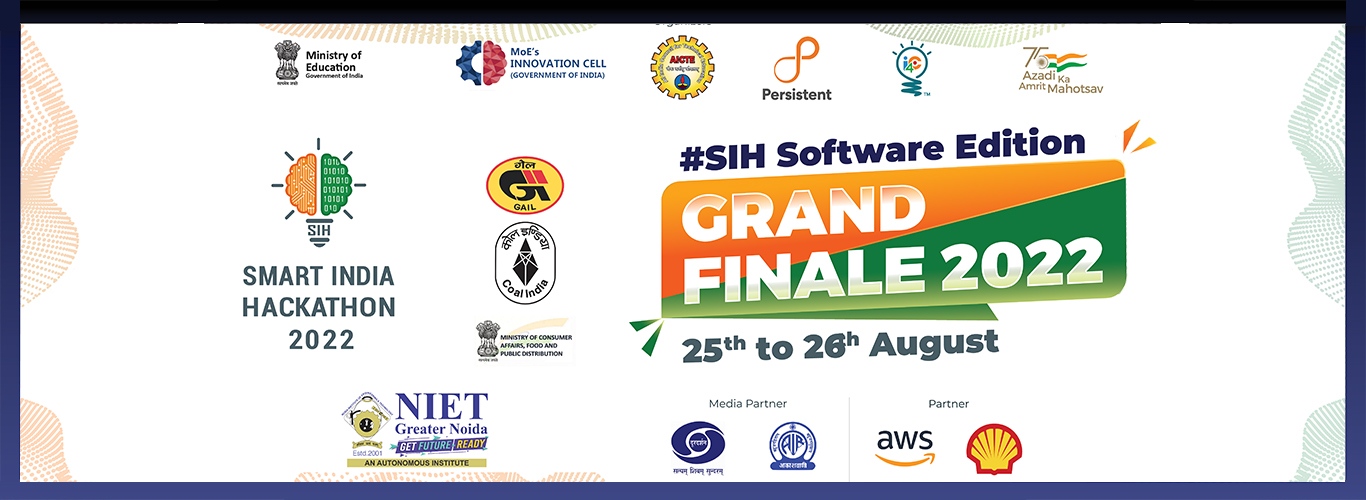2. Senior Software Engineer
A senior software engineer in a company is responsible for several duties. Whether it’s retail, healthcare, research and development, business, IT/ITES, government agencies, defense (army, navy, air force), insurance, banking, or finance, software engineers are needed in every field.Working as a senior software engineer requires a bachelor’s degree in computer science, engineering, or web development. In India, a senior SE makes roughly 9-10 lakhs per year.
How to Become a Senior Software Engineer
To become a senior software engineer, you need to inculcate a few skills that can help you to excel in your career and help you gain a well-paid job. A senior developer is someone who can code in 10 different languages and you can observe the problems from every angle. You also need to understand the core business value and ethics. To become a successful senior software engineer, you need to hold a 4 years bachelor’s Degree in B.Tech software engineering. For better career prospects, you can also pursue higher studies and pursue MTech in Software Engineering which is a 2-year post-graduation course.
Skills Required to Become a Senior Software Engineer
Here are a few top skills Required to Become a Senior Software Engineer:
- Computer Programming and Coding
- Software Development
- Object-Oriented Design (OOD)
- Software Testing and Debugging
- Problem Solving and Logical Thinking
- Written and Verbal Communication
- Teamwork
3. Investment Banker
Investment bankers provide financial advice to businesses and governments. They help businesses and other organizations raise funding for expansion and improvement.
Working as an investment banker requires a bachelor’s degree in finance, economics, or marketing. An MBA, CFA, or even a master’s degree in mathematics can significantly improve one’s prospects of becoming an investment banker. In India, the average annual wage is roughly ten lakhs rupees, while in the United States, it is one lakh dollars.
How to Become an Investment Banker
For becoming an investment banker, you need to have a bachelor’s degree in Economics, finance, accounting, or business, to get an entry-level position with any investment form or Bank. Also, you can improve your career prospects by obtaining a master’s degree or a doctorate from any recognized University. This will also help in improvising your interpersonal and communication skills.
Skills Required to Become an Investment Banker
Here are a few key Skills Required to Become an Investment Banker
- Analytical thinking
- Communication skills
- Innovative skills
- Resilience
- Relationship Building Skills
- Open-mindedness
4. Artificial Intelligence Engineer
The development process is carried out by artificial intelligence (AI) architect who makes design decisions.
They should be familiar with information and infrastructure, as well as current technologies, to construct an architecture that will function and adapt in the future. An AI architect’s annual income in India is around Rs. 63 lacs rupees.
How to Become an Artificial Intelligence Engineer
There are a few prerequisites that a candidate needs to fulfill to become a successful artificial intelligence engineer. A candidate needs a bachelor’s degree in artificial intelligence, computer science, IT, data science, finance, and other related domains for being eligible for this position. They can also pursue their master’s degree in Computer Science, cognitive science, mathematics, and data science for better career prospects. If a candidate has certifications in machine learning and data science then the chances for applying for a senior position also increase.
Skills Required to Become an Artificial Intelligence Engineer
Here is a list of Skills Required to Become an AI Engineer:
- Programming Languages
- Statistics/Calculus/Algebra
- Algorithms and Applied Mathematics
- Natural Language Processing
- Communication and Collaboration Skills
- Analytical Skills
5. Chief Executive Officer
A Chief Executive Officer is the highest-ranking and highest-paid executive in a company. CEOs are responsible for determining and managing the company’s corporate affairs, as well as making crucial business decisions, managing resources, and supervising all managerial operations at the highest level, such as coordinating, planning, and directing activities.
A CEO’s knowledge of business areas such as revenue, finance, marketing, banking, and organizational performance and structure is essential. In India, the average yearly pay is around 29-30 lakhs, while in the United States, it is around 3 lakh dollars.
How to Become a Chief Executive Officer
To become the CEO or chief executive officer of any business firm, a candidate needs to be aware of the CEO’s scope of work. A CEO is the leader of the organization and their roles and responsibilities are poles apart from the other employees. Their job roles are more sophisticated and they need to look after the departments of Public Relations, administrative decision-making, human resource management, financial management, and so on. Also, a CEO needs to hold a degree in leadership programs, management programs, or any other relevant field.
Skills Required to Become a Chief Executive Officer
- Natural Leader
- Innovative Approach
- Top-notch Managerial Skills
- Strong Communication Skills
- Decisive nature and mental clarity
6. Cloud Engineers and Architects
Cloud Software Engineers, Cloud Architects, and Cloud Infrastructure Engineers are in high demand, and the top industry offers are going to them.
Professionals with a degree in Cloud Computing who are also skilled in programming, database management, and Linux could see a salary increase of up to 60%. At the entry-level, candidates in Cloud Computing earn 6-8 lakhs per year, 10-12 lakhs per year at the mid-level, and 30 lakhs per year at the senior level.
How to Become a Cloud Engineers and Architects
The very first step towards becoming a successful cloud engineer is to pursue or relevant degree in Computer Science or Master’s degree in the same along with obtaining a few analytical and Technical skills. While few employers prefer candidates with a bachelor’s degree but for a senior-level position, a candidate needs to have a master’s degree in computer science or any other related field.
Skills Required to Become a Cloud Engineers and Architects
- Knowledge of cloud service providers
- Cloud security
- Programming skills, such as SQL, R, and Python
- Machine learning and artificial intelligence
- Development and maintenance of databases
7. Surgeon
Surgeons are well-respected medical professionals who are tasked with carrying out complicated procedures on patients. To work as a surgeon, you’ll need a medical degree and a license. They must also specialize in the specialty of surgery in which they intend to work. Add salary information.
How to Become a Surgeon
To become a surgeon, one needs to obtain an MBBS degree from a recognized University. After that, an MS degree in general surgery is required to become a practicing surgeon. A candidate can also go for any for the specialization MCI. And for pursuing an MBBS, one needs to be 10 + 2 passed out with at least 60% marks in Chemistry, Physics, and Biology. After that, the student needs to appear for the NEET entrance examination and clear it out for pursuing MS general surgery.
Skills Required to Become a Surgeon
- Good motor skills
- Communication skills
- Teamwork
- Patience and stamina
- Extensive experience of operative care
- Leadership skills
8. DevOps Engineer
From coding and classifying to maintaining and updating, a DevOps engineer devises a strategy to balance needs throughout the software development life cycle.
They add new features to a program, whereas operations teams seek to ensure that it remains stable once it is published. In India, the average annual income for a DevOps engineer is Rs. 11 lakhs.
How to Become a DevOps Engineer
To become a DevOps Engineer, one would require a tertiary qualification in the field of computer science or any other related subject as well as some industry experience. A proper bachelor’s Degree in computer science or any other related degree is required for a DevOps engineer. If a candidate wishes to enhance their skills then they can go for postgraduate study as well. There are also a few industrial certifications such as PMI Agile Certified Practitioner (ACP) or Master of Engineering (Software).
Skills Required to Become a DevOps Engineer
- Communication and Collaboration
- Soft Skills and Noble Thought
- Understanding of Relevant Tools
- Security Skills
- Automation Skills
- Coding and Scripting
- Cloud Skills
9. Cyber Security Specialists
The necessity to protect data and digital assets has become a priority as a result of broad digital transformation. The demand for highly skilled Cyber Security specialists with problem-solving, analytical, and computer forensics skills to decode and trace all computational movements is expanding in the tech industry.
Professionals in this field earn around 6 lakhs per year at the entry-level, 10-12 lakhs per year in the middle, and 30-40 lakhs per year at the senior level.
How to Become a Cyber Security Specialists
To become a cyber security specialist, a candidate must have above bachelor’s or master’s degree in the field of IT, computer science, systems engineering, or any other relevant subject. Also, few employers required experienced cyber security professionals so a little bit of industry exposure is also required. Candidates also need to have experience with the operation, functionality, and maintenance of firewalls and other forms of endpoint security.
Skills Required to Become a Cyber Security Specialists
- Networking and System Administration
- Knowledge of Operating Systems and Virtual Machines
- Network Security Control
- Coding
- Cloud Security
10. Product Manager
Product managers wear many hats, including those of IT specialists, management professionals, communicators, and success evangelists, and are frequently considered as mini-CEOs in charge of product launch and updates.
Product managers in India earn an average annual income of Rs 17,41,318 and can earn up to Rs 20 lakhs with applicable experience and upskilling.
How to Become a Product Manager
To become a product manager, one needs a handful of skills including the ability to identify market opportunities, do proper customer research, involvement in product modeling and road mapping, and lots more. To acquire the role of product manager, a candidate needs to have a master’s degree in Management, Business Administration, Engineering, Computer Science, marketing, economics, or any other related field. For becoming a manager in product development, a candidate also needs to have exposure to the industry with at least 5 years of experience in testing, product development, and product designing.
Skills Required to Become a Product Manager
- Strategic and creative thinking
- Knowledge of user experience
- Technical expertise
- Superior communication and collaboration skills
- Business intelligence
- Interpersonal skills
11. Full Stack Developers
From start-ups and top MNCs, professionals with experience in front-end and back-end development, version control systems, coding skills, cloud and database skills, and fluency in Java, CSS, Python, RubyonRails, and other coding languages can expect to earn 5-6 lakhs per year at entry-level, 8-10 lakhs per year at mid-level, and 10-12 lakhs per year at senior level.
How to Become a Full Stack Developer
A full-stack developer is responsible for working with a particular website right from its start to final launch. They are involved in prototyping, creating, and building websites with the user interface teams. The basic requirement to become a full-stack developer is a bachelor’s degree in computer science. Also, the candidate should be fluent in CSS, HTML, and JavaScript along with other programming languages.
Skills Required to Become a Full Stack Developer
- Front-end Languages and Frameworks
- HTML and CSS
- Backend Technologies and Frameworks
- NodeJS and ExpressJS
- Database Management Systems
- Version Control
- Web Hosting Platforms
- Soft Skills
12. Blockchain Engineer
A lucrative career, future security, good pay, and growth opportunities are something that a career in blockchain engineering foresees. Blockchain technology is making prominence across multiple industries and it has now become essential importance for most of the employers to higher blockchain engineers. An average Blockchain Developer’s salary in India ranges between ₹ 2.2 Lakhs to ₹ 20.0 Lakhs which increases with experience.
How to Become a Blockchain Engineer
To become a blockchain engineer, a candidate needs to earn a bachelor’s degree in information security or computer science. They need to have a complete fundamental background that is required to set up a career in blockchain engineering. Apart from that, candidates can also go for a few certification or specialization courses for becoming a blockchain engineer.
Skills Required to Become a Blockchain Engineer
- Blockchain architecture
- Cryptography
- Data structures
- Web development
- Programming languages
- Interoperability skills
Conclusion:
For any aspirant, deciding on a career choice can be a difficult task. There are a plethora of employment options accessible these days, and these factors can lead students and even professionals to choose an extremely difficult career path.
Yet, whatever the repercussions, it is impossible to deny that the benefits of high-paying employment are worth the effort, which is why it is critical to improve your abilities and prepare effectively for job interviews.
Start your career with the top-paying jobs today
Overall, if you want to outperform your competition, choose a profession that suits and fascinates you. Almost every job mentioned in this article is a high-paid job that can not only offer you various amenities but also with the utmost level of job satisfaction and of course a great career.










